Year of Living Dangerously
By Deneb Sumbul | International News | Published 7 years ago
 Someone Old, Someone New: 2016 World Leaders
Someone Old, Someone New: 2016 World Leaders
Tsai Ing-wen : Taiwan
In the general elections held in January 16, Taiwan elected Tsai Ing-wen its first female President. The Democratic Progressive Party (DPP) of which Ing-wen was the chair, won 56.1 per cent of the vote, and also secured a majority in the legislature, making it the first time the DPP could form a government alone. Ing-wen was also the first unmarried President elected, as well as the first to have never held another elected post.
Htin Kyaw : Myanmar
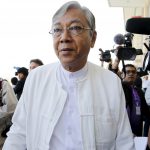 Myanmar’s parliament elected Burmese politician and scholar Htin Kyaw as the country’s new President on March 15, 2016. His presidency will be the first one to hold office with no ties to the military since the 1962 coup, ushering into government the longtime opposition party of Aung San Suu Kyi. Clauses in the constitution bar Suu Kyi from presidency, but she remains the leader of the National League for Democracy and a state counsellor. Htin Kyaw is largely viewed as Suu Kyi’s proxy.
Myanmar’s parliament elected Burmese politician and scholar Htin Kyaw as the country’s new President on March 15, 2016. His presidency will be the first one to hold office with no ties to the military since the 1962 coup, ushering into government the longtime opposition party of Aung San Suu Kyi. Clauses in the constitution bar Suu Kyi from presidency, but she remains the leader of the National League for Democracy and a state counsellor. Htin Kyaw is largely viewed as Suu Kyi’s proxy.
Volodymyr Groysman : Ukraine
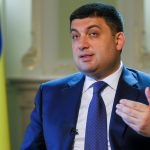 On April 14, after a month-long political crisis, the Ukrainian parliament appointed the speaker of the Ukrainian parliament, Volodymyr Groysman, to be the country’s new Prime Minister, after endorsing the resignation of his predecessor Arseniy Yatsenyuk.
On April 14, after a month-long political crisis, the Ukrainian parliament appointed the speaker of the Ukrainian parliament, Volodymyr Groysman, to be the country’s new Prime Minister, after endorsing the resignation of his predecessor Arseniy Yatsenyuk.
Michel Temer : Brazil
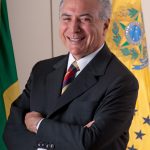 The Brazilian Senate voted on Aug. 31 to impeach the nation’s first female President, Dilma Roussef, permanently removing her from office and clearing the way for Michel Temer to become Brazil’s next President. Temer, 75, is the oldest premier to assume office and was the acting President since May 12 when Rousseff was suspended from her Presidential duties to face an impeachment trial.
The Brazilian Senate voted on Aug. 31 to impeach the nation’s first female President, Dilma Roussef, permanently removing her from office and clearing the way for Michel Temer to become Brazil’s next President. Temer, 75, is the oldest premier to assume office and was the acting President since May 12 when Rousseff was suspended from her Presidential duties to face an impeachment trial.
Malcolm Turnbull : Australia
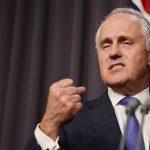 On July 10, leader of Australia’s Liberal Party and conservative Liberal-National coalition, Malcolm Turnbull, won his second term as Australia’s Prime Minister. His coalition retained a majority only by a single seat in what became known as a ‘knife’s-edge election.’ He is the author of three books and his net worth in 2015 was said to be in excess of 200 million Australian dollars.
On July 10, leader of Australia’s Liberal Party and conservative Liberal-National coalition, Malcolm Turnbull, won his second term as Australia’s Prime Minister. His coalition retained a majority only by a single seat in what became known as a ‘knife’s-edge election.’ He is the author of three books and his net worth in 2015 was said to be in excess of 200 million Australian dollars.
On July 11, Theresa May of the Conservative Party became the British Prime Minister, taking over from David Cameron who resigned in light of the Brexit vote. May has served six years as the Home Secretary and was on the ‘remain’ side in the Brexit vote.
Vladimir Putin : Russia
 Vladimir Putin secured his fourth term as President of the Russian Federation on September 18, after his party, the United Russia, won 343 seats out of 450 in the Duma (Russian Parliament). Putin was Prime Minister from 1999 to 2000, President from 2000-2008, and again Prime Minister from 2008 to 2012. It was during his second term as Prime Minister that he became the chair of the ruling party — the United Russia. During this election the voter turnout fell from 60 per cent to 40 per cent.
Vladimir Putin secured his fourth term as President of the Russian Federation on September 18, after his party, the United Russia, won 343 seats out of 450 in the Duma (Russian Parliament). Putin was Prime Minister from 1999 to 2000, President from 2000-2008, and again Prime Minister from 2008 to 2012. It was during his second term as Prime Minister that he became the chair of the ruling party — the United Russia. During this election the voter turnout fell from 60 per cent to 40 per cent.
Shavkat Miromonovich Mirziyoyev: Uzbekistan
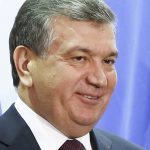 Shavkat Miromonovich Mirziyoyev became the second President of Uzbekistan on December 14, after the death of Islam Karimov on September 2 — Uzbekistan’s first and only President since independence. The first, Karimov, ruled for 25 years, but left no established successor when he died. Mirziyoyev, who had served as the Prime Minister from 2003-to 2016, was subsequently voted in, winning 88.6 per cent of the vote in the Presidential election.
Shavkat Miromonovich Mirziyoyev became the second President of Uzbekistan on December 14, after the death of Islam Karimov on September 2 — Uzbekistan’s first and only President since independence. The first, Karimov, ruled for 25 years, but left no established successor when he died. Mirziyoyev, who had served as the Prime Minister from 2003-to 2016, was subsequently voted in, winning 88.6 per cent of the vote in the Presidential election.
Paolo Gentiloni: Italy
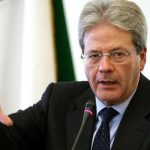 On Dec. 4, Italian Prime Minister Matteo Renzi announced his resignation after nearly 60 per cent of Italian voters — in a high election turnout of nearly 70 per cent — rejected a referendum he held with a view to reform the constitution. Foreign Affairs Minister, Paolo Gentiloni, was appointed the new head of government by President Sergio Mattarella on December 12.
On Dec. 4, Italian Prime Minister Matteo Renzi announced his resignation after nearly 60 per cent of Italian voters — in a high election turnout of nearly 70 per cent — rejected a referendum he held with a view to reform the constitution. Foreign Affairs Minister, Paolo Gentiloni, was appointed the new head of government by President Sergio Mattarella on December 12.
Shifting Political Sands
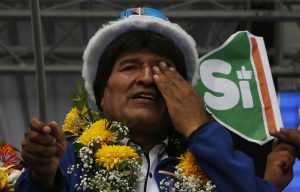 Juan Evo Morales, the popular Bolivian politician who has served as the President of Bolivia since 2006, was narrowly defeated in a referendum that would have amended the constitution, allowing him to run for a fourth term in 2020.
Juan Evo Morales, the popular Bolivian politician who has served as the President of Bolivia since 2006, was narrowly defeated in a referendum that would have amended the constitution, allowing him to run for a fourth term in 2020.
Morales is the country’s first premier to come from the indigenous population. His immense popularity began to wane after he fathered a child out of wedlock, and for allegations of corruption and using questionable means to consolidate power.
In a major step to renew relations with Cuba, on March 21, President Barack Obama became the first US President to visit Cuba in 88 years.
On May 27, Obama also became the first sitting US President to visit Hiroshima, Japan. While he did not go so far as to apologise for the nuclear attack on the city by the US in 1945, he met some survivors of the nuclear holocaust. Meanwhile, on December 27, Japanese Prime Minister ShinzÅ Abe travelled to Pearl Harbor, the US Naval Base with Obama and offered his sincerest condolences — if not an apology — to the victims of Japan’s attack 75 years ago.
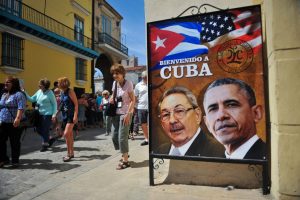 Relations between two erstwhile allies, Turkey and Israel, began to deteriorate after 2009 when Recep Tayyip Erdogan took over as President of Turkey. In an attempt to renew relations, the two nations came to a compromise agreement on June 27, in which the Turkish Prime Minister, Binali Yildirim, announced that Turkey would relinquish its access to the Gaza Strip, which had been blockaded by the Israeli navy for years. Israel, in turn, would permit Turkey to open political offices in the Hamas area, provided they only dealt with political issues and were not used to fund terrorism against Israel.
Relations between two erstwhile allies, Turkey and Israel, began to deteriorate after 2009 when Recep Tayyip Erdogan took over as President of Turkey. In an attempt to renew relations, the two nations came to a compromise agreement on June 27, in which the Turkish Prime Minister, Binali Yildirim, announced that Turkey would relinquish its access to the Gaza Strip, which had been blockaded by the Israeli navy for years. Israel, in turn, would permit Turkey to open political offices in the Hamas area, provided they only dealt with political issues and were not used to fund terrorism against Israel.
On August 7, 2016, Thailand held a referendum that resulted in a positive vote for a military-based constitution. It also made way for general elections to be held in 2017, in which Prime Minister Prayuth hopes to legitimise his junta, which has been in power since a coup in 2014.
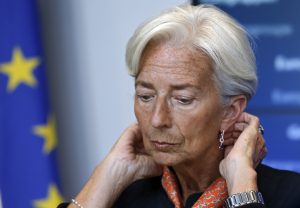 South Korean legislators moved to vote for the impeachment, on December 9, of President Park Geun-hye, the first female President of South Korea. Earlier, in October, thousands of South Koreans took to the streets demanding her resignation after a corruption scandal erupted, with allegations that Geun-hye was being significantly influenced by Choi Soon-sil, a friend who was involved in framing high-level government policies, without having any official clearance. Soon-sil is the daughter of a religious cult leader, Choi Tae-min, who was also Geun-hye’s mentor. Prime Minister Hwang Kyo-ahn was appointed interim President until the 19th South Korean Presidential election is held on, or before, December 20, 2017.
South Korean legislators moved to vote for the impeachment, on December 9, of President Park Geun-hye, the first female President of South Korea. Earlier, in October, thousands of South Koreans took to the streets demanding her resignation after a corruption scandal erupted, with allegations that Geun-hye was being significantly influenced by Choi Soon-sil, a friend who was involved in framing high-level government policies, without having any official clearance. Soon-sil is the daughter of a religious cult leader, Choi Tae-min, who was also Geun-hye’s mentor. Prime Minister Hwang Kyo-ahn was appointed interim President until the 19th South Korean Presidential election is held on, or before, December 20, 2017.
On Dec. 19, 2016, a special court in France found the head of the International Monetary Fund (IMF), Christine Lagarde, guilty of negligence in a case when she was serving as the French Finance Minister. Lagarde will be able to appeal the decision if she chooses. She will not receive a fine, any jail time, or even a criminal record.
New Age Pestilence
 An outbreak of the Zika virus disease that began in Brazil in April 2015, became a widespread epidemic in the Americas by early 2016. In February, the World Health Organisation (WHO) declared that the Zika virus was linked to a cluster of microcephaly (abnormal smallness of the head associated with incomplete brain development) and Guillain—Barré syndrome cases reported in Brazil. The WHO predicted that the virus would spread across other countries in South America, Central and North America and the Caribbean, and by August 2016, more than 50 countries reported cases of people infected with the virus. In Brazil alone, an estimated 1.5 million were affected, and there were over 3,500 babies reported with microcephaly.
An outbreak of the Zika virus disease that began in Brazil in April 2015, became a widespread epidemic in the Americas by early 2016. In February, the World Health Organisation (WHO) declared that the Zika virus was linked to a cluster of microcephaly (abnormal smallness of the head associated with incomplete brain development) and Guillain—Barré syndrome cases reported in Brazil. The WHO predicted that the virus would spread across other countries in South America, Central and North America and the Caribbean, and by August 2016, more than 50 countries reported cases of people infected with the virus. In Brazil alone, an estimated 1.5 million were affected, and there were over 3,500 babies reported with microcephaly.
Endless Diaspora
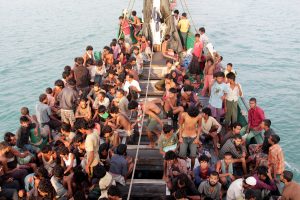 According to the UNHCR report released on World Refugee Day, June 20, the world is currently facing a global refugee crisis, with 65.3 million people from across the world having fled their homes to escape conflict. That figure applies to the total number of refugees worldwide until the last tally at the end of 2015. The figures for 2016 have not yet been made public. The global displaced population is now bigger than the population of the United Kingdom — and growing. About 34,000 people are forcibly displaced every single day. Over half of the world’s refugees — 54 per cent — are from just three countries: Syria with 4.9 million fleeing the country, followed by Afghanistan’s 2.7 million, and Somalia’s 1.1 million.
According to the UNHCR report released on World Refugee Day, June 20, the world is currently facing a global refugee crisis, with 65.3 million people from across the world having fled their homes to escape conflict. That figure applies to the total number of refugees worldwide until the last tally at the end of 2015. The figures for 2016 have not yet been made public. The global displaced population is now bigger than the population of the United Kingdom — and growing. About 34,000 people are forcibly displaced every single day. Over half of the world’s refugees — 54 per cent — are from just three countries: Syria with 4.9 million fleeing the country, followed by Afghanistan’s 2.7 million, and Somalia’s 1.1 million.
The countries that host the highest number of refugees worldwide are Turkey with 2.5 million refugees, followed by Pakistan (1.6 million), Lebanon (1.1 million), Iran (979,00) and Ethiopia (736,000). Out of such staggering numbers, only 200,000 returned home in 2015, mostly to Afghanistan, Somalia and the Central African Republic.
The Long Arm of Justice
 Educated as a psychiatrist, Radovan Karadzic, the first Bosnian Serb President during the Bosnian war that raged between 1992—1996, aka the “Butcher of Bosnia,” was, on March 24, found guilty and convicted of 11 counts of genocide, war crimes, and crimes against humanity by a United Nations tribunal at The Hague, Netherlands, and sentenced to 40 years imprisonment. Karadzic was responsible for orchestrating the massacre of almost 8,000 Muslim men and boys in Srebrenica in 1995. His arrest will bring Serbia closer to its bid of joining the European Union.
Educated as a psychiatrist, Radovan Karadzic, the first Bosnian Serb President during the Bosnian war that raged between 1992—1996, aka the “Butcher of Bosnia,” was, on March 24, found guilty and convicted of 11 counts of genocide, war crimes, and crimes against humanity by a United Nations tribunal at The Hague, Netherlands, and sentenced to 40 years imprisonment. Karadzic was responsible for orchestrating the massacre of almost 8,000 Muslim men and boys in Srebrenica in 1995. His arrest will bring Serbia closer to its bid of joining the European Union.
 Hissène Habré, Chad’s President from 1982 till he was deposed in 1990, was tried by the Extraordinary African Chambers after being in exile for 26 years and sentenced to life imprisonment on May 30. He was found guilty of torture, other human rights abuses — including rape, sexual slavery and, according to experts, the killing of more than 40,000 people. Habré was the first former head of state to be convicted for human rights abuses by due process in Africa.
Hissène Habré, Chad’s President from 1982 till he was deposed in 1990, was tried by the Extraordinary African Chambers after being in exile for 26 years and sentenced to life imprisonment on May 30. He was found guilty of torture, other human rights abuses — including rape, sexual slavery and, according to experts, the killing of more than 40,000 people. Habré was the first former head of state to be convicted for human rights abuses by due process in Africa.
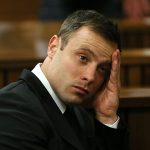 On 6 July, Oscar Pistorius, the South African paralympic and Olympic champion was sentenced to six-years imprisonment for murder. Pistorius had shot his girlfriend, Reeva Steenkamp on February 14, 2013. In 2014, a court ruled that Pistorius was guilty of culpable homicide, but a higher court overturned the decision on July 6. However, he was still charged with murder.
On 6 July, Oscar Pistorius, the South African paralympic and Olympic champion was sentenced to six-years imprisonment for murder. Pistorius had shot his girlfriend, Reeva Steenkamp on February 14, 2013. In 2014, a court ruled that Pistorius was guilty of culpable homicide, but a higher court overturned the decision on July 6. However, he was still charged with murder.
The world’s most powerful drug trafficker in the world, Joaquin (nickname El Chapo) Guzman, was captured for the third time in January in a pre-dawn deadly shootout by the Mexican naval special forces. A billionaire, Guzman’s vast narcotics empire stretched across continents. He was first captured in Guatemala in 1993, extradited, and sentenced in Mexico to 20 years imprisonment for murder and drug trafficking. He escaped in 2001 from a federal maximum-security prison after bribing the prison guards. He was again captured in February 2014 by Mexican authorities, without any gunshots fired. In July 2015, Guzman escaped for the second time from prison through an elaborate tunnel and there was doubt that he would see the inside of a cell ever again — until January 8, 2016.
Friends of Fair Weather
 On November 4, 2016, after 20 years of negotiations, the Paris Agreement — the international landmark accord on climate change — went into effect with 194 nations becoming signatories to the treaty. These include the world’s top polluters: the US, China, the European Union and India.
On November 4, 2016, after 20 years of negotiations, the Paris Agreement — the international landmark accord on climate change — went into effect with 194 nations becoming signatories to the treaty. These include the world’s top polluters: the US, China, the European Union and India.
Negotiated in Paris in late 2015 at the 21st Conference of the Parties of the United Nations Framework Convention on Climate Change, it is the first ever universal, legally binding deal in which all countries are part of an action plan to hold the increase in the global average temperature to well below 2 degrees Celsius — the threshold beyond which global warming would have catastrophic and irreversible effects.
Damning papers
 On April 3, in a detailed global investigative report, the International Consortium of Investigative Journalists (ICIJ) revealed on its website, documents that are now known as the Panama Papers. This was the culmination of work involving the efforts of hundreds of journalists from over 80 countries. The report essentially exposed how the world’s richest people channelled their amassed wealth into secretive offshore accounts in lightly regulated jurisdictions, such as Panama. The story created ripples through the world, resulting in at least 150 inquiries, audits or investigations in 79 countries around the world. Various governments have recouped at least $110 million so far in unpaid taxes or asset seizures due to these investigations and heads have rolled. The Prime Minister of Iceland resigned when his name appeared in the list of those with Panama connections. Others are expected to follow suit.
On April 3, in a detailed global investigative report, the International Consortium of Investigative Journalists (ICIJ) revealed on its website, documents that are now known as the Panama Papers. This was the culmination of work involving the efforts of hundreds of journalists from over 80 countries. The report essentially exposed how the world’s richest people channelled their amassed wealth into secretive offshore accounts in lightly regulated jurisdictions, such as Panama. The story created ripples through the world, resulting in at least 150 inquiries, audits or investigations in 79 countries around the world. Various governments have recouped at least $110 million so far in unpaid taxes or asset seizures due to these investigations and heads have rolled. The Prime Minister of Iceland resigned when his name appeared in the list of those with Panama connections. Others are expected to follow suit.
Fragmenting the Union
Brexit, short for “British exit,” refers to the withdrawal of Britain from the European Union after the referendum held on June 23, in which 52 per cent of British voters opted to leave the EU. The unexpected result sent shockwaves across Europe and led to the resignation of British Prime Minister, David Cameron. On November 3, the High Court in Britain ruled that parliament first has to approve Brexit before any process to leave the EU can begin. This is a setback for current UK Prime Minister May, who wanted to start the process immediately. A Don in the Office
A Don in the Office
 In what is now called “America’s Brexit,” one of the biggest upsets in US election history transpired on November 8, as the country and the world watched in shock Donald Trump defeat Hillary Clinton, to become the 45th US President.
In what is now called “America’s Brexit,” one of the biggest upsets in US election history transpired on November 8, as the country and the world watched in shock Donald Trump defeat Hillary Clinton, to become the 45th US President.
In one of the most bitterly contested elections to date, the controversial billionaire and Republican Presidential candidate swept to victory, despite countless polls predicting his defeat.
War Zones – A Sampling
Aleppo: Hell on Earth
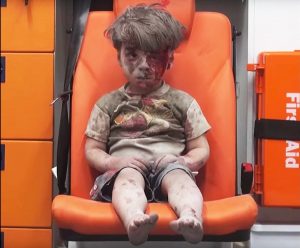 In more than five years of civil war, 450,000 Syrians, among them more than 203,097 civilians and 50,000 children, have lost their lives, and another 11 million more have been displaced from their homes. What began as protests against Bashar al-Assad’s government in the ‘Arab spring,’ escalated into an uncontainable civil war between forces loyal to the president and a growing opposition that demanded his resignation. Another dimension was added to the fray as the conflict evolved into a proxy war with interventions by foreign powers, and the Islamic State capitalising on the chaos.
In more than five years of civil war, 450,000 Syrians, among them more than 203,097 civilians and 50,000 children, have lost their lives, and another 11 million more have been displaced from their homes. What began as protests against Bashar al-Assad’s government in the ‘Arab spring,’ escalated into an uncontainable civil war between forces loyal to the president and a growing opposition that demanded his resignation. Another dimension was added to the fray as the conflict evolved into a proxy war with interventions by foreign powers, and the Islamic State capitalising on the chaos.
As Assad brutally crushed any opposition to his rule, people took up arms to defend themselves and formed into rebel brigades, fighting government forces to gain control of cities, towns and the countryside, with the conflict reaching Damascus and the city of Aleppo. Along the way, the civil war also garnered sectarian overtones, pitting the country’s Sunni majority against the Shia Alawite sect. This drew in other regional and world powers, as well as the IS.
All parties were held responsible for committing war crimes against each other by a UN commission inquiry, with the IS being accused of carrying out mass killings and inflicting severe punishments, including executions and amputations of those who resisted their rule. Hundreds were also found to have died when rockets filled with the nerve agent, saarin, were fired on Damascus. The western powers blamed the Syrian government for this, who, in turn, blamed the rebel forces.
As IS extended its control in Syria and Iraq, air strikes were launched by a US-led coalition targeting IS inside Syria. Russia, meanwhile, began an air campaign targeting what observers say are western-backed rebels and civilians who oppose the Syrian leader.
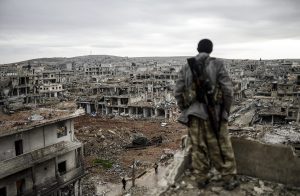 Tehran then stepped into the fray, increasing its military, lines of credit and oil transfer support for President Assad’s Alawite-led government, as Russia launched air strikes against Assad’s opponents, and Lebanon’s Shia Islamist Hezbollah movement fighters provided battlefield support. The Sunni-dominated opposition, meanwhile, fought back with the support of Turkey, Saudi Arabia, Qatar and Jordan, along with the US, UK and France. As the war raged on, many thousands lost their lives, even more their limbs and their homes, and Aleppo, an ancient metropolis inhabited continuously since probably the 6th millennium BC, and Syria’s most populous city, was virtually razed to the ground.
Tehran then stepped into the fray, increasing its military, lines of credit and oil transfer support for President Assad’s Alawite-led government, as Russia launched air strikes against Assad’s opponents, and Lebanon’s Shia Islamist Hezbollah movement fighters provided battlefield support. The Sunni-dominated opposition, meanwhile, fought back with the support of Turkey, Saudi Arabia, Qatar and Jordan, along with the US, UK and France. As the war raged on, many thousands lost their lives, even more their limbs and their homes, and Aleppo, an ancient metropolis inhabited continuously since probably the 6th millennium BC, and Syria’s most populous city, was virtually razed to the ground.
On August 18, 2016, a report confirmed that one of the hospitals in western Aleppo, that was overflowing with injured civilians, was hit by Russian warplanes — a clear violation of international law.
In September 2016, the Syrian army embarked upon a decisive military campaign to capture all the remaining rebel-held parts of Aleppo city. On December 13, following a successful offensive, the government forces achieved full control of Aleppo from the rebel groups who had held the city for the past four years. This was the fifth major city the Syrian government managed to gain control over, and was widely seen as a turning point in the Syrian civil war.
Meanwhile at a donor conference in February, 2016, several countries including the US, Germany, Norway and Kuwait pledged US $10 billion in aid of Syrians displaced during the conflict.
Kashmir: Vale of Tears
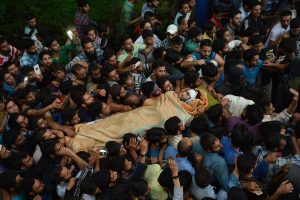 Violent unrest erupted in Kashmir in 2016 after the killing of Burhan Wani on July 8. Wani was a highly popular militant commander of the Kashmir-based Hizbul Mujahideen, and his death at the hands of Indian security forces triggered highly agitated anti-India protests in all 10 districts of the Muslim majority Kashmir Valley, in Indian-administered Jammu and Kashmir. More than 200,000 Kashmiris came to mourn Wani’s funeral on July 15, some from the remotest parts of the valley, and 40 back-to-back funeral prayers were held to accommodate them.
Violent unrest erupted in Kashmir in 2016 after the killing of Burhan Wani on July 8. Wani was a highly popular militant commander of the Kashmir-based Hizbul Mujahideen, and his death at the hands of Indian security forces triggered highly agitated anti-India protests in all 10 districts of the Muslim majority Kashmir Valley, in Indian-administered Jammu and Kashmir. More than 200,000 Kashmiris came to mourn Wani’s funeral on July 15, some from the remotest parts of the valley, and 40 back-to-back funeral prayers were held to accommodate them.
Protestors defied the curfew that was imposed, and mobile phone services were suspended for a consecutive 53 days and counting, across the valley. Protestors attacked public properties and security forces. The Indian paramilitary and police forces retaliated with tear gas, rubber bullets, assault rifles and pellet guns that caused the death of more than 100 Kashmiris and injured 11,000 others. Two security personnel were also killed and 4000 more were injured in the clashes. The pellet guns used by the Indian security forces, labelled as ‘non-lethal,’ were the cause of a high number of casualties, including eye injuries. Many of those at whom they were targeted, permanently lost their eyesight.
In the process of the riots, the Hizbul Mujahideen militant wing Burhan Wani belonged to, which has over the years achieved immense popularity among the Muslim majority in the Kashmir valley, was dubbed a terrorist organisation by the Indian authorities.
The increased radicalisation of the Kashmiri population, according to some analysts, is a reaction to the rising Hindu nationalism popularised by Indian Prime Minister Modi, and his Bharatiya Janata Party. When two of Burhan’s associates, Waseem Mall and Naseer Ahmad Pandit, were also killed by security forces, funeral rites had to be held six times for the thousands of Kashmiris who had come to mourn.
Yemen: Dying a Slow Death
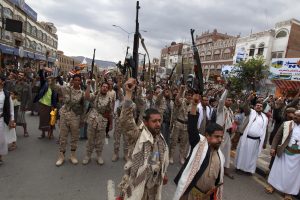 Between March 2015 and October 2016, over 10,000 people have been killed in war-torn Yemen — including 4,125 civilians —and well over 7,000 have been injured, in mostly Saudi-led multinational coalition airstrikes. The raging civil war between forces loyal to internationally recognised President Abdrabbuh Mansour Hadi and the Houthi rebels allied with former president, Salehv, has further devastated what was already one of the poorest countries in the Arab world.
Between March 2015 and October 2016, over 10,000 people have been killed in war-torn Yemen — including 4,125 civilians —and well over 7,000 have been injured, in mostly Saudi-led multinational coalition airstrikes. The raging civil war between forces loyal to internationally recognised President Abdrabbuh Mansour Hadi and the Houthi rebels allied with former president, Salehv, has further devastated what was already one of the poorest countries in the Arab world.
The situation has resulted in the IS and Al-Qaeda in the Arabian Peninsula (AQAP) taking control of large parts of the hinterland along the coastline, and making their way to the government-controlled city of Aden.
On March 21, 2015, as Houthi forces allied with those loyal to the former Yemeni President Saleh, took control of the Yemeni government, the capital Sana’a, and Hadi’s seat of power, Aden, he fled the country. Thereafter, Saudi Arabia formed an international coalition in support of Hadi’s government, launching airstrikes with the logistical support of the US, UK and France.
In mid-August 2016, in a Saudi-led coalition airstrike, a bomb hit the Médecins Sans Frontières (MSF) building — the fourth attack in 12 months — a fully functional hospital full of patients with national and international staff.
A blockade imposed by the coalition resulted in another humanitarian disaster, because of which 80 per cent of the population — about 21 million people — are being deprived of basic necessities and medical aid. Half the population is under the age of 18, and children constitute a third of the civilian deaths. According to the United Nations, after two years of conflict and the Saudi-led blockade, 3.1 million of the population are internally displaced, and 14 million people — including children — are slowly starving.
Turkey: The New Battleground
For Turkey, 2016 was a period of high tension with a coup attempt that was foiled and a spate of deadly bombings that were not.
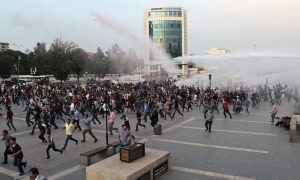 The attempted coup of July 15 by a faction of the country’s military left 300 dead and over 2000 injured. Turkish President Recep Tayyip Erdogan promised heavy retribution and blamed the coup on US-based cleric Fethullah Gulen. Mass arrests followed, with more than 120,000 officials being purged and 40,000 — including at least 10,000 soldiers — detained. For unclear reasons 2,745 judges were also dismissed and detained the day after the coup. Also suspended were 15,000 members of the staff of educational institutes, as the licenses of 21,000 teachers were revoked, with the government alleging they were loyal to Gülen. The first trial of 29 police officers charged with overthrowing the government commenced on December 27.
The attempted coup of July 15 by a faction of the country’s military left 300 dead and over 2000 injured. Turkish President Recep Tayyip Erdogan promised heavy retribution and blamed the coup on US-based cleric Fethullah Gulen. Mass arrests followed, with more than 120,000 officials being purged and 40,000 — including at least 10,000 soldiers — detained. For unclear reasons 2,745 judges were also dismissed and detained the day after the coup. Also suspended were 15,000 members of the staff of educational institutes, as the licenses of 21,000 teachers were revoked, with the government alleging they were loyal to Gülen. The first trial of 29 police officers charged with overthrowing the government commenced on December 27.
On December 11, two bombs set off within minutes of each other by militants from the Kurdistan Freedom Hawks (TAK) outside a soccer stadium in Istanbul, killed 38, and injured 160 others. An offshoot of the Kurdistan Workers Party (PKK), TAK has been responsible for several attacks in Turkey over the past year. In another incident captured on live television on December 19, was the fatal shooting by an off-duty policeman of the Russian ambassador to Turkey while he was giving a speech at an event in Ankara. The gunman was killed shouting, “Allahu Akbar” and “Don’t forget Aleppo,” killed by Turkish Special Forces. It was not spared on New Year’s Eve either. An IS attack on a nightclub in Islanbul left 39 dead and 70 injured.
Palestine: Resolutions Sans Resolve
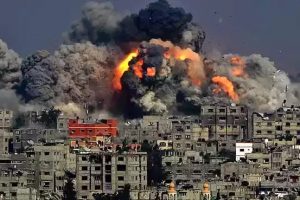 In a surprising move, on December 23, Israel’s staunchest ally, the United States abstained from voting on a UN Security Council resolution that enabled 14 members of the UN Security Council to adopt the first resolution since 1979 to condemn Israeli settlements on occupied Palestinian territories. Much of the Middle East lauded the historic resolution, saying it paved the way for a two-state solution.
In a surprising move, on December 23, Israel’s staunchest ally, the United States abstained from voting on a UN Security Council resolution that enabled 14 members of the UN Security Council to adopt the first resolution since 1979 to condemn Israeli settlements on occupied Palestinian territories. Much of the Middle East lauded the historic resolution, saying it paved the way for a two-state solution.
An infuriated Prime Minister Benjamin Netanyahu however rejected the resolution, holding US President Barack Obama and Secretary of State John Kerry responsible. Nonetheless, Israeli officials fear the resolution could engender the possibility of prosecution at the International Criminal Court, and spur countries to impose sanctions at international forums against Israeli settlers and the goods they produced. There are an estimated 630,000 Israeli settlers currently living in occupied Palestinian territories.
The new UN resolution changes nothing on the ground as Israel has announced it will press ahead, even accelerate further settlements on occupied territory.
Since a Palestinian upheaval in October 2015, called the ‘Jerusalem Intifada,’ violence against Palestinians has intensified in the occupied territories, with 235 Palestinians and 34 Israelis having been killed since then.
The Mother of All Evils
Under the umbrella of IS, terrorist groups across continents continue with their
deadly agenda.
Jan. 30: Boko Haram raided Dalori, a Nigerian village, killing, according to official estimates, at least 65. According to locals, however, more than 100 were killed, many children abducted in the attack, and the entire village was burnt to the ground. Terror attacks and threats by Boko Haram have caused approximately 2.5 million people in four countries to flee and seek refuge elsewhere.
Jan. 31: On the eve of UN-mediated Syria peace talks in Geneva, two suicide bombers and a car bomb exploded in the heavily populated Sayeda Zeinab district of Damascus — the location of Syria’s holiest Shi’ite shrine. The suicide attack killed more than 70 people. IS claimed responsibility for the attack.
Feb. 11: At a refugee camp in Nigeria meant for those fleeing Boko Haram, a suicide bombing by two girls claimed 58 lives, while wounding another 78. A third girl chose not to detonate her bomb after seeing members of her immediate family in the camp, and gave herself up to the authorities.
Mar 5: In a collaborative operation between Somali intelligence services and the US, airstrikes targeted a military training camp in a forest run by Islamic extremists, 124 miles north of the Somalian capital, Mogadishu. More than 150 members of the Al-Shabab were killed in the attack.
Mar 18: Belgian police arrested Salah Abdesalam, the only major suspect still alive of the nine said to be behind the 2015 Paris terrorist attacks. Abdesalam is thought to be the IS logistics chief of the multiple terrorist attacks in Paris on November 12, 2015 that killed 130 people.
Mar 22: One of the deadliest acts of terrorism in Belgium’s history took place as three coordinated suicide bombings occurred in Brussels. Two bombs were detonated at the Brussels Airport and one in Maalbeek metro station in central Brussels, killing 32 people and injuring more than 300, while a fourth bomb was found during an airport search. The IS claimed responsibility.
May 11 & 17: IS claimed responsibility for a series of suicide and truck bombing attacks across Bagdad, Iraq. Among the three major attacks on May 11, one in which a truck exploded outside a crowded market, killed at least 66 — most of them women — destroyed 30 stores, and burnt at least 20 cars. More than 103 were killed that day, and another 110 on May 17 as attacks continued outside Bagdad. According to the IS, Shia fighters were their target as Iraqi Shia militias are fighting alongside the Iraqi army against IS.
Jun 28: Three gunmen armed with automatic weapons and explosive belts staged a terrorist attack on Istanbul’s Ataturk airport, killing 45 people and injuring more than 230. Although no one claimed responsibility for the attack, Turkish officials believe the attacks were related either to the IS or to Kurdish separatists.
May 30: Under the protection of US air cover, the Iraqi Army stormed into Fallujah, Iraq. Coalition airstrikes targeted two IS convoys leaving Fallujah over two days, destroying 175 vehicles carrying militants outside the city. Over 250 militants are said to have been killed in the attack.
Jun 5 & 8: In the city of Aktobe, Kazakhastan, over two dozen Islamic insurgents first stormed two gun stores and then, with the weapons acquired from there, attacked an army base. Four civilians and three police officers were killed during the rampage. Shootouts continued over the next few days between terrorists and police, and another attack at a children’s camp on June 8, left seven victims dead, and 37 injured. Eventually, 18 attackers were killed and nine arrested.
Jun 12: Omar Mateen, a 29-year-old security guard, killed 49 people and wounded 53 others inside Pulse, a gay nightclub in Orlando, Florida, United States. After a three-hour standoff Mateen was shot and killed by the police. It was both, the worst incident of mass shooting by a single shooter, and the deadliest attack against the lesbian, gay and transgender (LGBT) community in United States history. Mateen is said to have sworn allegiance to Abu Bakr al-Baghdadi, the leader of IS, and told a negotiator his actions were because of the American-led interventions in Iraq and Syria.
Jun 13: On the outskirts of Paris, a man shouting Islamist slogans stabbed his neighbour, a 42-year-old police officer, to death before taking the officer’s wife and son hostage. Police raided the house, killed the attacker, and discovered the officer’s wife dead, but his son alive. IS claimed responsibility.
Jun 18: After more than two years of IS taking over the Iraqi city of Fallujah, Iraqi Prime Minister Haider al-Abadi, declared victory, as it reverted to Iraqi control after the militant group retreated after months of fighting. The city now suffers from a serious refugee crisis.
Jul 1: Five assailants armed with crude bombs, machetes and guns entered a bakery late evening in an affluent area of Dhaka, took several dozen hostages, including foreigners and locals, and proceeded to kill 20 of them. An elite force of Bangladesh’s armed forced was finally able to breach the blockade, but nine more people were killed in that effort. IS claimed responsibility for the incident, releasing photographs of the gunmen, who were all Bangladeshi citizens — from wealthy families. Meanwhile, the Bangladesh Home Minister announced the attackers belonged to the Jamaat-ul-Mujahideen, and were not affiliated with IS.
Jul 2: As Muslims crowded a shopping centre in Bagdad celebrating the end of Ramzan, a truck packed with explosives detonated, killing 137, wounding 200 others, and leaving 37 still missing. IS claimed responsibility. In another attack the same day, a suicide bomber targeted the holy city of Medina, Saudi Arabia, leaving four dead. IS has yet to claim responsibility for that attack, but analysts suspect it is also behind that act of terror.
Jul 14: As the public was out celebrating Bastille Day in large numbers in Nice, southern France, a truck hurtled through the crowds, fatally crushing 86 people and injuring 434 more, including children. The driver, a Tunisian-born Frenchman, was shot and killed by police officers. IS claimed responsibility for the attack.
July 18: A 17-year-old Afghan boy armed with an axe and a knife attacked passengers on a regional train in southern Germany, injuring four passengers. Witnesses reported him shouting “Allahu Akbar” as he attacked. He tried to flee the scene, but was shot dead by the police.
July 22: An 18-year-old German-Iranian gunman went on a killing spree, shooting dead nine people and wounding 16 others at a shopping mall in Munich, before killing himself. He appears to have acted alone, although investigations continue. No group has claimed responsibility to date.
July 24: : In Ansbach, Germany a 27-year-old Syrian refugee, who had been denied asylum, detonated a bomb outside a music festival, killing himself and injuring 15. A video message left on his phone stated his allegiance to IS and his plot for revenge against Germany. IS claimed him as one of their “soldiers.”
Jul 26: Two men armed with knives stormed a church in the northern French town of St.-Étienne-Du-Rouvray, took several hostages as mass was ending, and slit the throat of the 85-year-old chapel priest as he resisted. A specialised police unit shot the young men dead. Islamic State took responsibility for the attack terming it an act of religious war between Muslims and Christians.
Aug 2: A splinter group of the jihadists of the West Africa province of the Islamic State — Boko Haram — stated that Abu Musab al-Barnawi was their new leader. The remainder continued to serve under the former supreme head, Abubakar Shekau. Al-Barnawi said his major agenda would be the killing of Christians, while abstaining from harming Muslims. Shekau responded by calling Abu Musab al-Barnawi an infidel, and asserting he was is still in charge of Nigeria’s militant Islamist group.
Aug 8: A suicide bomber struck a hospital in the southwestern city of Quetta, Pakistan, killing 74 people. A splinter group of the Pakistani Taliban, Jamaat-ul-Ahrar, claimed responsibility for the attack, who have taken an oath of allegiance with the IS.
Aug 20: A suicide bomber attacked a Kurdish wedding party in Gaziantep, near the Syrian border in Turkey, killing more than 51 people and wounding 69, 17 of them seriously. According to Turkish President Erdogan, the attack was carried out by a boy no older than 12 or 14.
Aug 31: In a rare public statement, IS announced the death, in Aleppo, Syria, of Mohammad al-Adnani, a senior key deputy floated as Al-Bagdadi’s successor and spokesman of their jihadist group. While the cause of his death is unknown, the group pledged to avenge it. Al-Adnani is believed to have been the mastermind behind large-scale terrorist attacks on countries that are allied with the United States, including France, and the handler of international and lone-wolf attacks.
Oct 13: Boko Haram released 21 of the 276 Chibok schoolgirls who were kidnapped in April 2014. This was the first mass release of the girls after a series of negotiations between Boko Haram and the Nigerian government brought about by the International Red Cross and the Swiss government. Earlier in June, two Nigerian schoolgirls, Amina Ali and Serah Luka, belonging to the same group of schoolgirls abducted by Boko Haram were found in different incidents and returned home, one of them with a baby. To date, 218 remain missing.
Nov 1: Iraqi government forces entered Mosul for the first time in two years as the first phase of an offensive strategy to take back the city from IS control. The city of 1.5 million was under Islamic State control since a caliphate was declared under Abu Bakr al-Baghdadi in 2014.
Nov 8: IS kidnapped almost 300 civilians in Tal Afar, a city outside Mosul, Iraq. The fate of the kidnapped civilians is still unknown, but according to the UN, it has been ascertained that 18 of the city’s 30 sheikhs have been killed.
Nov 24: At least 80 Shiites, returning from a pilgrimage in commemoration of the martyrdom of Imam Hussain, were killed when an IS suicide bomber detonated an explosive-laden truck in southern Iraq. IS claimed responsibility.
Dec 11: : With Russian and Syrian troops distracted in the battle for Aleppo, IS recaptured the city of Palmyra, from which it was expelled nine months ago. During their last occupation of the 2000 year-old city, the IS destroyed ancient temples and other artefacts.
Dec 19: A truck jumping the sidewalk ploughed through pedestrians before crashing into a Christmas market in Berlin, killing 12 people and injuring 48 others. The suspect’s identity was confirmed by a fingerprint match that belonged to Anis Amri, a 24-year-old Tunisian. According to Italian officials, he was shot dead by the police near Milan, bringing an end to an international manhunt.
Dec 29: Iraqi forces advanced, once again, inside Mosul in a second anti-IS offensive to regain control of Mosul – the last stronghold of the IS in Iraq.
The writer is working with the Newsline as Assistant Editor, she is a documentary filmmaker and activist.




